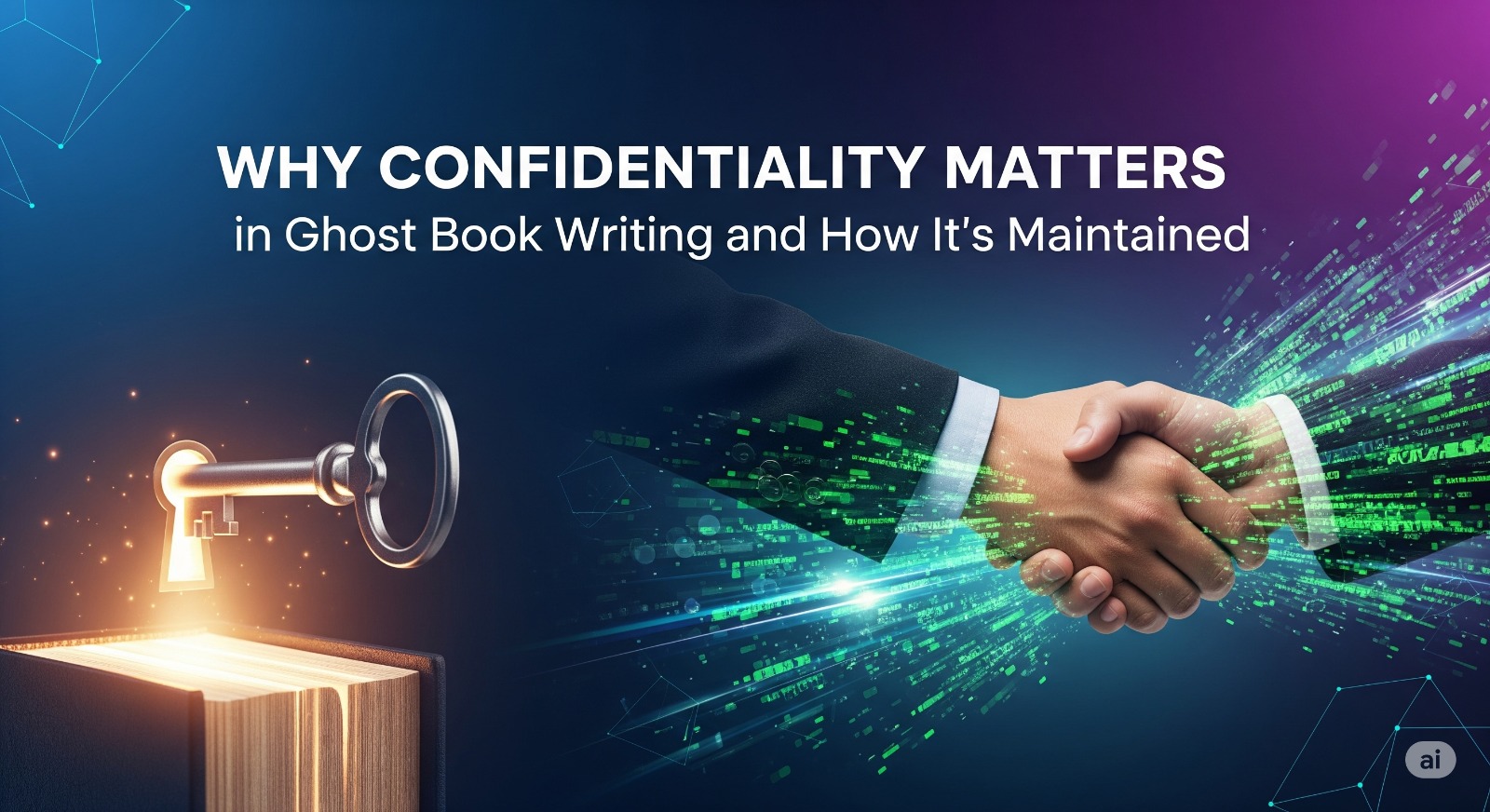In the world of ghost book writing and publishing services, confidentiality is paramount. When an author hires a ghostwriter, the client typically retains full credit as the book’s official author while the ghostwriter remains anonymous. This confidentiality is vital to protect the client’s intellectual property, personal brand, and authorship rights. Here’s why it matters and how trusted ghostwriting services maintain it throughout the process.
Why Confidentiality Is Critical
- Protecting Author Identity:
Many clients prefer anonymity to safeguard their privacy or maintain professional boundaries. Whether a public figure, business leader, or private individual, having a ghostwriter ensures that the client’s voice is heard without revealing who actually crafted the content. - Ownership Rights and Copyright:
Confidentiality agreements affirm that all rights, copyrights, and royalties belong solely to the client. This legal protection prevents any ghostwriter from claiming partial ownership or using the material elsewhere. - Maintaining Brand Integrity:
For business authors or thought leaders, publishing authentic content under their name strengthens market credibility and authority. Confidential ghostwriting preserves brand consistency and helps avoid any potential reputational risks associated with third-party involvement. - Trust and Professionalism:
A confidential working relationship fosters trust between the client and ghostwriter. Clients can freely share personal stories, ideas, and sensitive information, which is crucial for crafting an authentic and compelling manuscript.
How Confidentiality Is Maintained by Ghostwriting Services
- Non-Disclosure Agreements (NDAs):
Reputable Ghost Book writing companies and freelancers always sign NDAs with clients and often their team to legally guarantee that all shared information remains private. - Contractual Clauses on Rights and Usage:
Service agreements explicitly state that copyright and authorship belong to the client, detailing how the work can be used and prohibiting ghostwriters from reusing or publishing the material. - Secure Communication Channels:
Professional ghostwriting teams use encrypted emails, secure project management platforms, and private calls to share drafts, feedback, and sensitive data safely. - Discreet Payment and Billing:
Billing is handled in ways that don’t reveal details publicly, further protecting anonymity. - Reputable Service Providers:
Trusted platforms like Reedsy, Scribe Media, and Kevin Anderson & Associates have strong confidentiality protocols, ensuring that client information and authorship remain secure.
What Clients Can Do to Ensure Confidentiality
- Request Written NDAs:
Always ask the ghostwriting service or freelancer to sign a nondisclosure agreement before beginning work. - Clarify Ownership Terms:
Review contracts carefully to confirm that all rights transfer to you as the author. - Work with Established Professionals:
Choose ghostwriting services with proven reputations and transparent confidentiality practices. - Limit Sensitive Information Sharing:
Share only necessary details and avoid exposing information that could jeopardize your privacy beyond the manuscript.
In Summary
Confidentiality is the cornerstone of a successful ghostwriting relationship. It protects your identity, preserves your copyright, maintains your brand’s integrity, and allows open, trusting collaboration with your ghostwriter. When selecting Ghost Book writing and publishing services, prioritizing confidentiality safeguards your book project from legal or reputational risks and ensures your name shines on the cover without compromise.
















































